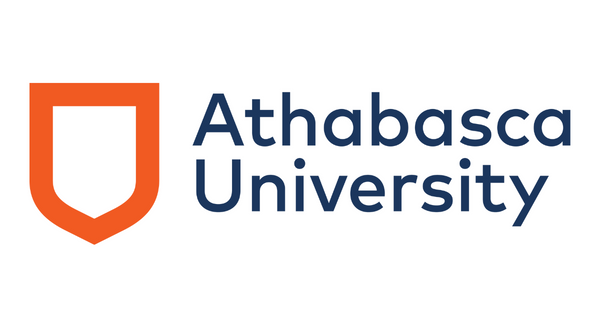
Athabasca University is a public research university located in the province of Alberta. It is Canada's open university and fully online that serves over 40,000 students across the world.
Athabasca focuses on providing an open and flexible learning environment that enables students to pursue their education regardless of location, life circumstances, academic history, or age.
Because of its fully digital setup, Athabasca's websites are its infrastructure. Providing visitors with the best user experience possible to make students feel comfortable is vital to the school’s success.
Before switching to Cascade CMS (Cascade) in 2020, Athabasca used a content management system (CMS) that restricted its users from taking full control of its digital assets. The outdated framework hindered the web team from modernizing the overall look and feel of Athabasca's website.
Athabasca has five core Faculties, and each Faculty used to have its own website template and experiences, confusing prospective students and current students considering the university.
An upgrade was needed due to Athabasca's scheduled Digital Experience Project. This initiative focused on overhauling every single public-facing page within the Athabasca web ecosystem.
Athabasca identified the following key requirements that a new enterprise CMS had to provide:
The web team, led by Rodrigo Silva, MScIS, Manager, Digital and Web Operations, planned on creating a new enterprise information architecture to support every site and conducted a thorough content audit to ensure information was up-to-date and relevant to its target audience. Sites no longer relevant were decommissioned, and others revamped.
As part of this massive project, Athabasca acquired several products, one of which was a modern CMS that could handle the task. After a long and strenuous RFP process, Athabasca chose Cascade unanimously because the CMS allowed the team to create a more modern website with a better user experience.
Shortly after concluding the RFP process, a team of seven traveled to Hannon Hill's office in Atlanta, GA, for training. The two-day intensive training block introduced the ins and outs of Cascade. The team returned to Alberta upon completion. What had become clear to them is that managing and creating content in Cascade CMS was easy, creating high quality and effective web content required an additional skill set altogether. They wanted to ensure that each content contributor understood their audience, such as their reading levels, and the difference between academic writing and writing for a web audience, and the basics of SEO. As a result, the team created an interactive course called "Writing for the web." This course was designed to support users creating new content that would be populated using Cascade. This new course is delivered through the university's Learning Management System (LMS).
Each CMS end user at Athabasca was, and still is, required to adhere to the strict editorial guidelines outlined in the course to ensure brand consistency. This onboarding process may take longer than usual but assures the leadership team that end users not only know how to use the CMS effectively, but are well versed in the unique art of writing effective web content.
The team at Athabasca partnered with an external digital agency to conduct quantitative and qualitative research and as part of that to analyze every page on their website, reviewed the data, and identified which pages were popular from those that were not. With that knowledge, the web team made data-driven decisions, wrote content their audience wanted, and decommissioned the pages no longer relevant.
With the help of a digital user experience agency, a thorough content audit, and the addition of a copywriter, the team completed the Digital Experience Project within two years. A massive undertaking well worth the effort due to a much-improved user experience.
The entire implementation process of Cascade was completed in-house by the university’s University Relations and IT teams, who only occasionally reached out to Hannon Hill for product specific AWS Cloud requirement questions.
Since implementing Cascade, Athabasca's user experience and adoption have drastically increased. The website's content is accurate and easy to understand. Sites are uniform, reflecting one brand message, and students are able to navigate the website seamlessly.
Because of Cascade's ease of use, Athabasca's web team was able to deliver on their Digital Experience Project with zero prior Cascade knowledge.
The change management piece was critical to achieving their lofty goal, said Rodrigo Silva, Digital and Web Operations Manager. But regular weekly meetings with key stakeholders, full transparency, an inclusive approach taken by the web team, and data-driven decisions led to buy-in amongst everyone involved.
"One of the main reasons we chose Cascade was its Velocity component, as well as the in-line edition feature," said Rodrigo Silva.
Athabasca's previous CMS solely operated on XSLT. In Cascade, users can use Velocity and XSLT. When considering other CMS providers, the implementation from the ground up was more difficult, and the learning curve would have been much higher compared to Cascade.
Athabasca recently started a new revamp project of its main website. When the university switched to Cascade in 2020, the main website was still relevant. Now that the world has drastically changed, and technology is ever evolving at a quicker rate, it was time to update their main website.
The leadership team plans to continue to attend conferences offered by Hannon Hill, such as the annual Cascade User Conference, to stay up-to-date on the latest improvements done by the product team behind the Cascade.
Rodrigo Silva, MScIS, Manager, Digital and Web Operations at Athabasca University:
“I'm very pleased with Hannon Hill. That's one thing that I got as early as the RFP process started. You were on top of it, and the moment we went to Atlanta, the team felt very welcome. Every time we need support, you reply within a couple of hours at most. Once a month, I speak with someone from the Success Team about Cascade. I had several universities contact me for reference checks, and I've always had wonderful things about the product.”